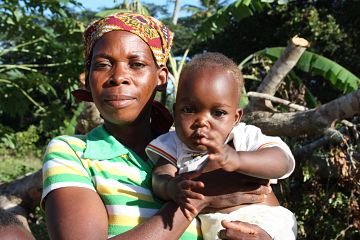Malaria Consortium calls for more data on malaria and Ebola co-infection
25 May 2021
Pioneering secondary research by Malaria Consortium published in PLOS ONE explores the immune response and health outcomes of a simultaneous infection with malaria and the Ebola virus. Researchers found that more studies and analyses are needed to establish how malaria and Ebola infections interact, so as to optimise control and case management in the future.
Malaria Consortium researchers were the first to synthesise available information by systematically reviewing peer-reviewed papers with primary data to establish the overall effect on disease outcomes from Ebola and malaria co-infection. This review demonstrated that existing literature was inconclusive with studies varying widely and not adjusting to confounding variables.
"The higher incidence of Ebola outbreaks in recent years along with the current roll-out of the Ebola vaccine in countries with high malaria prevalence means understanding how these two infections interact is vital to optimise case management,” explains Hannah Edwards, lead author of the research. “At a wider level, understanding how malaria and different viral infections interact is more and more relevant as viral outbreaks and pandemics pose an increasing threat to the region."
The research suggests that more laboratory studies are needed to answer how pathogens interact within the body and recommend an improvement in data collection, analysis and in diagnostic methods to support patient studies. There has been an increasing threat of Ebola viral outbreaks in recent years but little is known about how co-morbidities, such as a malaria infection, affect Ebola immune response and disease outcomes. Co-infections may alter immune responses and the expected course of infection, morbidity and mortality, and might require a different approach to case management among individuals.
Viral Ebola outbreaks present a particular challenge in countries in sub-Saharan Africa where there is already a high incidence of other infectious diseases, including malaria, which can alter immune responses to secondary infection. Understanding how malaria and Ebola virus interact is important for future disease outbreaks and responsive, effective interventions.
Latest news
- Malaria Consortium honoured by Ugandan government for contribution to combat malaria23rd April 2024
- International summit calls for AMR accountability in public health interventions21st March 2024
- Global SMC community celebrates new milestone at SMC Alliance Annual Meeting in Nigeria6th March 2024
- Scaling up key interventions could halve pneumonia-related childhood mortality13th February 2024
- Malaria Consortium and eGov Foundation join Mozambique’s national malaria programme to digitalise seasonal malaria chemoprevention campaigns8th February 2024
- World’s first malaria vaccine rollout launched in Cameroon22nd January 2024